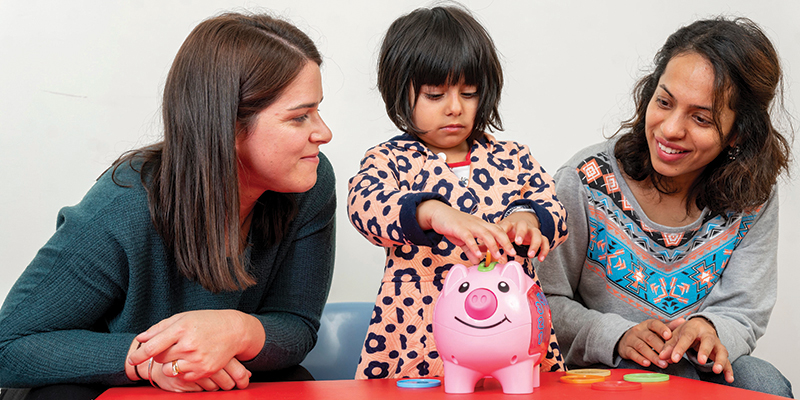
Autism now accounts for 47 per cent of children on the National Disability Insurance Scheme, making it a key health priority for Australia. A unique new model developed by the Telethon Kids autism research team marries cutting-edge research with clinical practice to offer families innovative, evidence-based interventions designed to help kids reach their full potential.
Launched in January this year and located at Telethon Kids’ former home on Roberts Road, Subiaco, CliniKids is a warm and modern clinic for children with developmental delays and/or autism spectrum disorders.
The model is an Australian first, not only providing families with diagnostic and clinical psychology, occupational and speech therapy services, but also giving them an important opportunity to be part of novel research.
CliniKids General Manager Gemma Upson said the new service aimed to address the enormous gap between research findings in the field and their translation into clinical practice. One research paper has put the lag between research and practice at 12 years; another a staggering 17 years.
“That’s massive in a child’s life,” Ms Upson said.
“Research is obviously conducted in a very controlled environment and sometimes that can’t be easily translated into the messy real world we live in.
“The CliniKids model has the ability to innately feed clinical expertise into our research and vice versa, so that we can trial interventions in a real-life setting and also evaluate the financial implications.”
“Having interventions that are evidence based is very important but if the cost is prohibitive to families and service providers, it may not be widely accepted. The clinic is going to bridge that gap – trial the research in a real-life clinical setting, communicate that to the providers, and help educate the community.”
An estimated 2 per cent of Australian children have an autism diagnosis, and extensive research has shown that commencing therapy in early childhood will reduce their level of disability. Early intervention could be the difference, for example, between a child developing speech or remaining non-verbal.
The Institute’s autism research, led by Professor Andrew Whitehouse, is regarded as world-leading – however, Ms Upson said advances had been limited by the absence of a centre like CliniKids, dedicated to new diagnosis and intervention methods in young children.
“It’s early days yet and we are busy building our programs and data collection systems, however feedback from families so far has been very positive,” Ms Upson said.
Families felt reassured that services were provided in a judgement-free atmosphere, and in a modern, purpose-built clinic where everyone was treated with compassion.
“Our families have the confidence too, that our interventions are backed by a skilled research team which uses highly evidence-based interventions,” she said.
